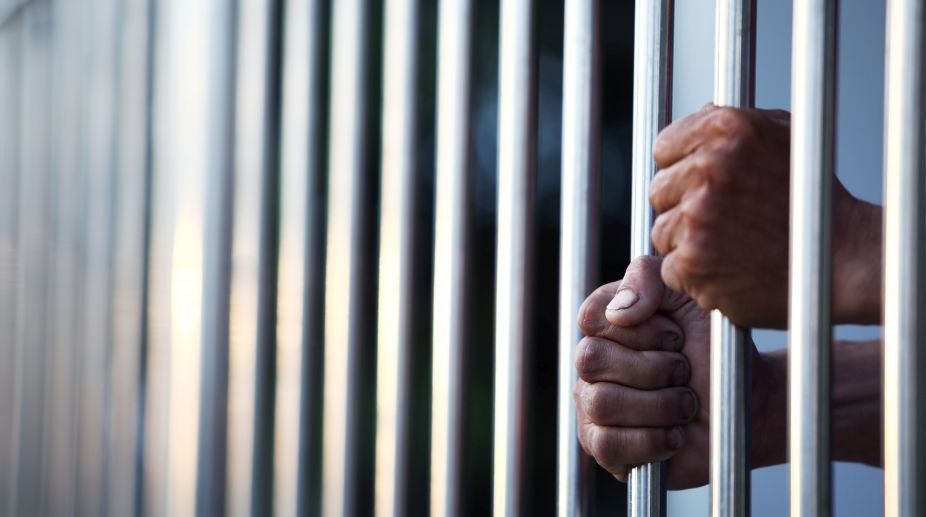Preventive detention, in India, is a provision first introduced under section 151 of the Criminal Procedure Code to detain people without a legal warrant before a crime is committed. This provision was created during British rule allowing the rulers to detain any person who was suspected of carrying out prejudicial activities detrimental to the state.
Independent India adopted the law. Even though this provision clearly violates the fundamental rights as enshrined in the Constitution, it was brought under the purview of reasonable restriction. Thus, this and other preventive detention laws continue to exist.
Advertisement
While precautionary provisions, these have been misused by police resulting in many capricious and unjust arrests. Under the Cr. PC, a person cannot be detained for more than 24 hours. Other preventive detention laws prescribe different periods. But there have been instances where people have been detained for over a year.
Police sometimes have detained people solely because they are Dalits or belong to backward caste. This is a clear violation of Article 14 as well. Responding to this unauthorised procedure, the Supreme Court has questioned the police on their understanding of ‘goonda’ or ‘public order’. Preventive detention provisions under different laws must be used prudently.
In V. Shantha v State of Telangana and Ors.[2017] Justice L Nageswara Rao and Justice Navin Sinha of the Supreme Court quashed the order of preventive detention under the Telengana Prevention of Dangerous Activities of Bootleggers, Dacoits, Drug Offenders, Goondas, Immoral Traffic Offenders Land Grabbers Act, 1986.
The court noted: “An order of preventive detention, though based on the subjective satisfaction of the detaining authority, is nonetheless a serious matter, affecting the life and liberty of the citizen under Articles 14, 19, 21 and 22 of the Constitution…If the power is misused, or abused for collateral purposes, and is based on grounds beyond the statute, takes into account extraneous or irrelevant materials, it will stand vitiated as being in colourable exercise of power.”
This power should only be exercised under two circumstances:
- When the person being arrested desires to commit a cognizable offence.
- The offence that the person being detained proposes to commit cannot be prevented by any other alternate means.
On 10 April 2018 in Alochi Bagh, Srinagar, the police arrested a college student who was 16 years of age at the time. The police in this instance breached various protocols linked to the arrest of juveniles.
For one, a juvenile when arrested should be produced before the juvenile justice board and the judicial magistrate within 24 hours and the Child Welfare Officer should be informed.Last year in Chennai, four people were detained by the police under preventive detention laws in order to crack down on political activity in support of Sri Lankan Tamils.
The police detained Thirumurugan Gandhi, leader of the group and three of his associates without a legal justification for the arrest that clearly violated their fundamental rights. It was later pointed out that preventive detention should not be invoked for flimsy or petty reasons, but there should be proper justification for the detention.
This invites an obvious question – why should preventive detention exist in India? India being a multi-religious, multi-lingual society with a variety of castes is prone to societal conflict. But this cannot be justification for continuance of preventive detention provisions to deal with such conflicts. Further, there is no reason for police to misuse this provision particularly during peoples’ right to carry peaceful protests.
Preventive detention laws must be reviewed in order to restrict their use. Further, all preventive detention laws carry a provision for judicial scrutiny or review. The police should justify the arrest and legitimate evidence should be produced against the person detained.
This position was upheld by the apex court in Prabhu Dayal Deorah v. District Magistrate, Kamrup when it held that “if a citizen’s fundamental right is being breached then it is our duty to see if the procedure has been rigorously followed”. This case related to a detention under the Maintenance of Internal Security Act, 1971.
As held in Maneka Gandhi v. Union of India, while the Constitution allows exceptions to the fundamental rights, this can only be done by following due procedure.
In conclusion, while there may be a need for preventive detention, the law has clearly been misused in the past. Chances of misuse must be minimized by amending the laws to make them more citizen friendly, while ensuring greater scrutiny of the actions of the state and its instruments.
The writers are students of the Jindal Global Law School, Sonipat.
















